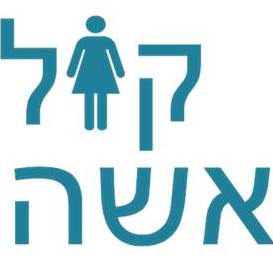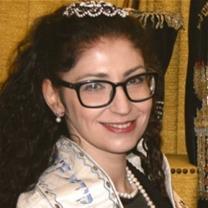
Banner

Board sued in Equality Court over ‘Kol Isha’
ANT KATZ
The Cape Council of the SA Jewish Board of Deputies is being sued by two Jewish Cape Town residents and joined by interfaith group SACRED, for “discrimination of women on the basis of gender”. The claimants say that the Board has placed a ban on women singing at Jewish secular communal events.
Papers were lodged last week Friday in the Equality Court of the Western Cape High Court by Advocate Anton Katz SC.
 The original claimants are Gilad Stern and Sarah Goldstein and the respondent is the Cape Board. Stern and Goldstein were subsequently joined in the matter by The South African Centre for Religious Equality and Diversity (SACRED) which is chaired by Progressive Rabbi Julia Margolis.
The original claimants are Gilad Stern and Sarah Goldstein and the respondent is the Cape Board. Stern and Goldstein were subsequently joined in the matter by The South African Centre for Religious Equality and Diversity (SACRED) which is chaired by Progressive Rabbi Julia Margolis.
The specific challenge comes ahead of Yom Hashoah – Holocaust Memorial Day – which takes place in just under a month, says James Lomberg, executive director of SACRED. For the last decade the Board has not permitted women to sing at the ceremony which usually takes place at the Pinelands Cemetery in the southern suburbs of Cape Town.
“It is particularly upsetting where such a ban is put in place (on Yom Hashoah), which should stand for all time as a warning against the perils of discrimination,” he says. It is an affront to the memory of the victims of the Shoah to exclude women, he posits.
Simmering for several years
The issue has been simmering for several years as both the Board and the SA Zionist Federation have not allowed women to sing at secular events as the widely held Orthodox religious practice on the prohibition against men hearing a woman’s singing voice – termed “Kol Isha” – has become commonplace.
This is “correct according to halacha”, a respected local rabbi who asked not to be named, told Jewish Report this week. “There are a number of dispensations,” he explained, that Orthodoxy had relied on in the past to exclude certain events.
However, the current trend among Orthodox Jewry worldwide reflects a “general shift to the right”, he explained, adding that no Orthodox rabbi in this community would support the perception of applying dispensations to bypass halacha on an issue such as this.
 Jewish Report contacted Gilad Stern who would not comment “at this stage” or provide contact details for Sarah Goldstein.
Jewish Report contacted Gilad Stern who would not comment “at this stage” or provide contact details for Sarah Goldstein.
Stern is understood to be Orthodox. Advocate Katz told SAJR that his instructions were to refer questions to Stern.
LEFT: Rabbi Julia Margolis, chairman of SACRED
Chairman of the Cape Council of the Board, Eric Marx, told Jewish Report that a compromise had been proposed and that he hoped an accommodation would be reached.
He did not want to jeopardise current attempts to settle the impasse by commenting further.
Rabbi Julia Margolis, SACRED’s chairman, said the organisation’s reasons for joining the action were that SACRED felt it was their “right, moral obligation and duty, as concerned South African Jews, to challenge this unacceptable gender discrimination by the SAJBD”.
SACRED had, she said, attempted to engage with the Board and suggest compromises. But the Board has “refused to allow women to sing memorial prayers and liturgy” since 2005, she maintained.
Board issues statement Wednesday
The SAJBD is aware of the fact that papers have been served at the Equality Court on the issue of women singing at the Yom Hashoah Memorial Prayer Ceremony, and we will be studying the papers in due course.
However, we wish to point out that this issue is part of an ongoing conversation with the various sectors of our community, all of whom are deeply invested in this emotional and important ceremony.
We feel that the serving of the papers is premature and that through thorough negotiation, a suitable compromise could have been found. Despite this, we will continue to engage with all concerned, including SACRED, and we once again appeal to them to be part of this very important discussion in our community.





Marc Lipshitz
April 7, 2016 at 9:28 am
‘Its simple really- let them come, and have everyone walk out when they step up onto the stage, let them sing to an empty venue! Do they really think that an occasion in remembrance of Jewish martyrs who died al Kiddush Hashem is a time for their political and feminist statements? Let them embarrass themselves, let the community demonstrate to them what we think of those who would tread on Jewish traditions and practices what is thought of them!’
Dovi
April 7, 2016 at 12:32 pm
‘SACRED is a rather meaningless group, it’s really just a part of the reform movement, and it has a catchy name. This group don’t do much, and is ineffective, BUT – issues like this make them feel important; they get invited to meetings, have robust discussions around the table, drink lots of coffee, send tons of emails, and it makes them feel like they are part of something big. In reality, they are not, but the sense of importance is all worth it. So let them make a noise and have their 15 minutes in the sun. It will die down, and we won’t hear from them again until next year when somebody feels like another meeting and coffee.’
Interested Jew
April 8, 2016 at 6:40 am
‘Editor – I am pretty sure that I have heard choirs with Women at SAZF Yom Hatzmahut events. You should check it out and correct this if it is not the case.
\n
\nI hope that the board can get this sorted out, this is a secular event and they have no reason to make it a religious one even if the tone is solemn. SACRED does a good job but they like to spend time marginalizing the community in an already difficult environment.
\n
\nHopefully this threat of court will get everyone to get their act together and compromise. This is a holocaust memorial the Nazis didnt care if you were a women, a man, a feminist or chareidi.
\n
‘
ANT KATZ
April 8, 2016 at 9:00 am
‘Thanks for your input, ‘Interested Jew’ – the mere fact that you do not disclose your name is indicative of how thorny this issue is. It is like walking on eggshells.
It seems the question is less of the halachic position or changing halacha, but more the appetite of ecumenical authorities regarding using exclusions that they are able to use to over-ride the halacha.
In the strictest view, a man never listens to a woman sing live or recorded.
Halachic presidents used in the past to apply leniency and bypass the letter of the law, so to speak, which included:
1. If a woman is singing in a choir – but usually only if it included men;
2. If it was not live but a recording – some authorities still accept this as okay; and
3. Even if it’s a live performance but carried through a microphone and speakers.
I think this debate will rage for many years to come as we are a very diverse community. We have the separate (yet amazingly similar) Sephardi and Ashkenazi thinking that developed independently for 2,000 years – and all the sub schools of thought that have evolved over the past few hundred years. None of that will change easily. ANT KATZ’
Rav Shalom
April 12, 2016 at 1:19 pm
‘What is most distressing about this prohibition is the lack of sensitivity and understanding from the Rabbis that insist on the prohibition.
Surely at least some of them know the background to the Psak prohibiting the voice of women?
That this ruling is arguable and some communities have adopted a more lenient approach.
The more liberal approach is not new but goes back generations and is based on alternative, more enlightened 19th cent. Rabbinic interpretations?
See below for a review of this approach and how songs of lamentation sung by women can be halacha.
In other words it’s really up to the local Rabbi(s)
judgment. And the Kol Isha prohibition
has been sustained by our Rabbinate as their choice.
And this is the crux of the issue.
The SAJBD has decided to accept a discriminatory interpretation rather than seeing their primary responsibility to the community as a whole.
A more responsive Board would stand up to the Rabbis –explain that we live in a Constitutionally defined jurisdiction that prohibits gender discrimination and point out that most of the Jewish community do not necessarily find that women singing will drive males
into instantly seeking sexual gratification.
Even more distressing is that this approach is used at Yom Hashoah commemorations.
If there is one event that can unite the entire community it is the horror of the Shoah.
Instead the Board loses its moral compass and – seemingly enthralled by bigoted Rabbis – finds itself hauled before a secular court to tell it how to behave like menschen.
A schande !
“Rav Weinberg instead defends the German Jewish practice by citing the Sdei Chemed (Klalim, Maarechet Hakuf, 42) who quotes the Divrei Cheifetz who asserts that the Kol Isha prohibition does not apply to women
singing Zemirot, singing songs to children, and lamentations for the dead.
This authority explains that in these contexts men do not derive pleasure from the woman’s voice. In fact, the Pasuk (Shoftim 5:1) records that Devora the
prophetess sang a song of praise to Hashem together with Barak the son of Avinoam. According to the simple reading of the text, Devora was married to Lapidot and not Barak.
The Sdei Chemed writes that he believes that it is
proper to be strict and not follow the approach of the Divrei Cheifetz, but he regards the lenient opinion as a viable approach.”
‘
Ilan Solomons
April 13, 2016 at 5:53 am
‘Sacred should be applauded for having taken up this issue. It is long overdue that this ‘creeping chareidism’ in South African Jewish communal life was countered in a progressive, liberal manner. The overwhelming majority of South African Jews have no issue whatsoever with hearing women sing this is a fact and those that do have an issue with it are under no obligation to participate in this secularJewish event to commemorate the victims of the Shoah. It is a shame that they have had to resort to having to go to court to ensure this matter is resolved fairly, however, they have done what was necessary and I for one hope they are successful. To the Sacred team I say Chazak Ve’ematz (Be strong and have courage)
\n
\nSacred should be applauded for having taken up this issue. It is long overdue that this ‘creeping chareidism’ in South African Jewish communal life was countered in a
\nprogressive, liberal manner. The overwhelming majority of South African Jews
\nhave no issue whatsoever with hearing women sing this is a fact and those that
\ndo have an issue with it are under no obligation to participate in this secular
\nJewish event to commemorate the victims of the Shoah. It is a shame that they
\nhave had to resort to having to go to court to ensure this matter is resolved
\nfairly, however, they have done what was necessary and I for one hope they are
\nsuccessful.’
Levi
April 14, 2016 at 7:09 am
‘@Ilan Solomons – the overwhelming majority of South African Jews have no issue whatsoever with breaking Shabbos and eating treif. By extension, you are saying that any secular function can also take place on Shabbos and serve treif food, and those that have an issue with such a function, are under no obligation to participate.
Isn’t it amazing how liberalism is all about inclusivity, except when it means the inclusion of those who disagree with your leftist values.’
Joshua Grigst
April 14, 2016 at 10:02 am
‘Levi. After the Yom Kippur War I went to Israel and served as a volunteer on a Kibbutz which overlloked the Lebanese Border and until ’67 its fence was the border with Syria. The kibbutz, Kfar Tzold, needed voluneers as they were harvesting and most of the menfolk were fighting and the women were either in the army or replacing men in their positions in nearby Kiryat Shmona as those men were called up. A very Zionist kibbutz established 40 years before Israel.
What was interesting was that of the 1200 mebers and their kids, only one had fasted on Yom Kippur.
Im not commenting on the issue in this article, but on your convoluting religious and political leftist views. Maybe Solomons is both. But there are many who are one the other. ‘
Rav Shalom
April 15, 2016 at 10:12 am
‘Levi, Relax Boychik !
Your anxiety about the Liberal Police is unfounded.
No one is trying to coerce the Community into breaking Shabbos or forcing you or anyone to eat treif.
It is a common misconception and fake tactic to conflate a single issue with the whole.
The
issue here is about decency, fairness and tolerance (foundational
Jewish values) and a push back against exclusion and intolerance (not so
Jewish).
This is not a zero sum game. Not Leftist, Rightest or In-betweenist.
Allowing
the voice of women to be heard singing, live and in person does not
mean that Shabbos is cancelled forever. (Or even slightly).
It does not mean that bacon cheeseburgers will be served at Community events.
It does not mean that observance will be ignored or disrespected.
It is not the thin edge of the wedge heralding a new Sodom and Gomorrah.
Stop schreing gavalt.
Listen to the issue. Respond to the issue. Add to the issue.
Not with prejudice but with a Yiddishe Kop.
I understand the insecurity of those of us who try to lead a traditionally observant life.
It is difficult to tread along tightly prescribed boundaries with so many pitfalls and possibilities of transgression.
Yet we manage to find a way to stay on track mindful of the difference that makes us Jews.
But we should also be mindful of the sense and meaning of the rituals and traditions.
They
are meant to keep us aware of the spirituality that abounds, the
obligations we have undertaken as Jews and the relationship and manner
we conduct that relationship with our fellows and all humanity. It is
this essence that is important. The rituals are there to reinforce that.
We should not follow them blindly. They have to make sense.
Our
tradition is an ancient one and therefore the Law that was laid down
centuries ago needs to be constantly re-interpreted in the light of
modern understanding.
This has always been the strength of our Faith.
Over the centuries our observance and practices change to stay meaningful and relevant and true.
We no longer sacrifice animals, keep slaves or stone people to death. ( Extreme examples).
We no longer believe in demons and witches as discussed exhaustively in the Talmud.
We rely on our Rabbis to provide the guidance for our lives today.
By
maintaining the relevancy of the prohibition on hearing women singing
the Rabbis are out of step with universally accepted morality and
understanding.
The Board should not heed their insistence on a
misogynistic practise and blindly accept this as Halacha that has to be
followed or else all is lost.
This is extremism and has no place in Judaism.
‘